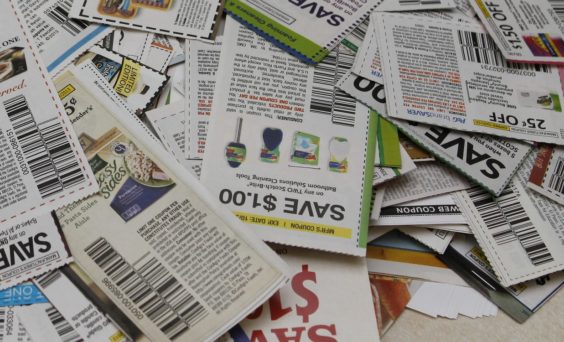You may think you’re being smart by using coupons and looking for deals. It will certainly save you money, at least in the short term. But a new study says it could make you less satisfied, and cost you more money in the long run.
In short, couponing may be bad for us – and you may be able to save more, if everyone just paid full price.
This counterintuitive conclusion was reached by two British academics, who have published their findings in the Royal Economic Society’s Economic Journal.
Their appropriately academic-sounding “Competition in Posted Prices With Stochastic Discounts” found that the more people who buy products at a discount, the more that prices will rise for everyone.
“The greater the proportion of the population who seek to bargain, the higher list prices will be,” economics professors David Gill and John Thanassoulis write in their report. “Similarly, in the case of couponing, if a large proportion of consumers is targeted by coupons, then the competitive pressure on list prices will be reduced and these list prices will rise.”
It makes sense when you think about it. The more products that retailers sell at a discount, the more they need to make from those who are buying at full price, in order to help subsidize the discounts. And since discount prices exist as “strategic complements” to list prices, then as list prices rise, the discounted prices will rise too.
But that’s not the only explanation. Competition also plays a part. Higher regular prices at one retailer, allow a competitor to offer lesser discounts in response. “Anticipating an easier sale,” the researchers write, competitors may find that “customers can be attracted with a less generous coupon.” And as one retailer’s discounted price rises, its competitors’ discounted prices rise as well. “That will set in train a virtuous circle, in which price levels are pushed up across the board,” the researchers warn.
In addition to paying higher prices, the study found that coupons can make you buy products that leave you dissatisfied. Given the choice “between paying a high list price for the product he prefers and a lower discounted price for the less attractive product,” the report reads, “the consumer can, in effect, be bribed to accept a less-ideal product.”
Couponing and deal-seeking can still save you a lot of money, so the study’s gloomy conclusions may seem somewhat harsh. But wait – it gets worse. “Although bargaining may be great for the individual who does it, it is bad for society as a whole,” the researchers conclude. Not only do prices rise across the board, but “consumers’ overall benefits are pulled down by bargaining, as they are in effect bribed by reductions off an elevated list price into buying a product that is not their best match.”
Some critics of couponing agree that you can end up spending more, by acquiring things you don’t want or need, just because they’re cheap. But is it really “bad for society”? Consider the extreme couponing craze of several years ago – it prompted manufacturers and retailers to alter their coupon policies and issue new restrictions that made shopping, and saving, more difficult for everyone.
So maybe there’s something to this study after all, and its conclusion that the more you try to save, the more you’ll end up spending. In couponing, as in life, the key may be to take everything in moderation – before a good thing goes bad.














